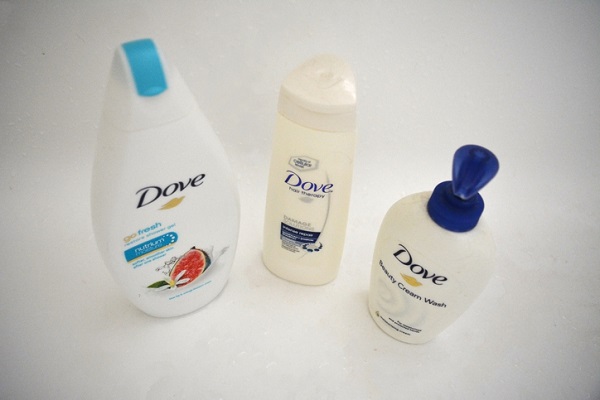ii view: Unilever growth plan includes ice cream sale
Under a relatively new CEO and offering an attractive dividend yield as it looks to accelerate growth. Buy, sell, or hold?
19th March 2024 11:51
by Keith Bowman from interactive investor

Acceleration of growth action plan via separation of ice cream business
- Ice cream business to be separated out
- Productivity programme targeting cost savings €800 million over the next three years
Chairman Ian Meakins said:
"The Board is determined to transform Unilever into a higher-growth, higher-margin business that will deliver consistently for all stakeholders. Improving our performance and sharpening our portfolio are key to delivering the improved results we believe Unilever can achieve.”
- Invest with ii: Open a Stocks & Shares ISA | ISA Investment Ideas | Transfer a Stocks & Shares ISA
ii round-up:
Consumer goods giant Unilever (LSE:ULVR) today announced plans to intensify its drive to accelerate growth, including a simplifying of its product portfolio with the separating out of its ice cream business.
It will target cost savings of around €800 million over the next three years which could involve the loss of around 7,500 jobs. A demerger of the Ben & Jerry's and Magnum ice creams business is more likely given the unit's differentiated operating model and having generated its lowest sales growth in 2023 of 2.3% compared to over 5.5% for its other Beauty, Personal and Home Care and Nutritional divisions.
Shares in the FTSE 100 company rose 5% following the news having fallen by a similar amount over the last year. That's in contrast to a 13% gain for rival consumer goods maker Procter & Gamble Co (NYSE:PG) and a 4% improvement for the FTSE 100 index itself over that time.
Unilever’s many brands include Sunsilk, Dove, Cif, Lux, Knorr, Hellmann’s, and Walls ice cream. Ice cream sales of €7.9 billion in 2023 accounted for Unilever’s smallest category of revenues at 13%, with every other division at or over 20%.
The separation of Ice Cream, which sells five of the top 10 selling global ice cream brands, will begin immediately and is expected to complete by the end of 2025.
Most of the job losses will be largely office-based, with total restructuring costs anticipated to be around 1.2% of group turnover for the next three years.
A refocusing of its product portfolio comes as part of a push to create a leaner and more accountable organisation, enabled by investment in technology.
Activist investor Nelson Peltz continues to hold a seat on the board. A first-quarter trading update is scheduled for 25 April.
ii view:
Started in 1929, Unilever generated sales of €59.6 billion in 2023, down from €60 billion in 2022. Selling its products in more than 190 countries, its goods are used by around 3.4 billion people every day. Personal Care products such as Dove and Rexona were its biggest seller in 2023, followed by Nutritional sales and brands including Horlicks. Operating over 250 factories globally, around 75% of its sales come from 30 so-called power brands. The emerging markets generate most of its sales at close to three-fifths.
For investors, elevated borrowing costs pressuring consumer spending have previously resulted in reduced product sale volumes, with consumers likely downgrading to cheaper supermarket own brands. Costs generally remain elevated, competitors such as Proctor and Gamble are not standing still, while the required cost of ongoing investments in areas such as marketing, product innovation and technology also affect operating profit margin.
- Sign up to our free newsletter for investment ideas, latest news and award-winning analysis
- 12 UK stocks make this list of buy ideas
- eyeQ round-up: gold, BT, Aviva, Persimmon, Imperial Brands
On the upside, an exit from ice cream leaves the company more focused on its remaining four product categories, a significant push to reduce costs is being pursued and there is still significant geographical diversity. Product price increases have previously helped offset increased costs, while a focus on shareholder returns remains, with the shares on a forecast dividend yield of around 4%.
For now, and despite ongoing risks, this consumer goods giant looks to remain worthy of its place in diversified and long-term focused investor portfolios.
Positives:
- Diversity in both product type and geographical location
- Cost saving programme
Negatives:
- Elevated cost pressures
- Discount retailers often only stock their own branded labels
The average rating of stock market analysts:
Hold
These articles are provided for information purposes only. Occasionally, an opinion about whether to buy or sell a specific investment may be provided by third parties. The content is not intended to be a personal recommendation to buy or sell any financial instrument or product, or to adopt any investment strategy as it is not provided based on an assessment of your investing knowledge and experience, your financial situation or your investment objectives. The value of your investments, and the income derived from them, may go down as well as up. You may not get back all the money that you invest. The investments referred to in this article may not be suitable for all investors, and if in doubt, an investor should seek advice from a qualified investment adviser.
Full performance can be found on the company or index summary page on the interactive investor website. Simply click on the company's or index name highlighted in the article.